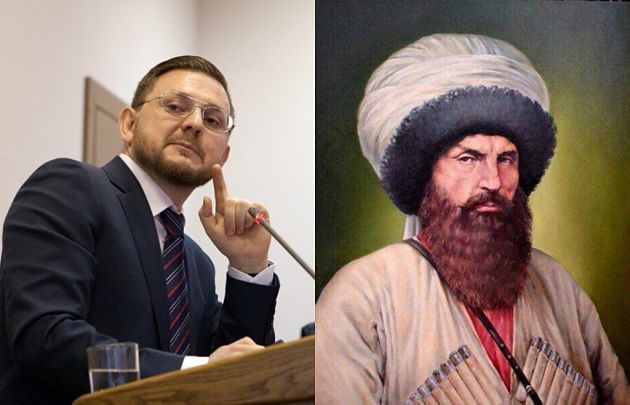Disputes about Imam Shamil have not subsided for days – historical revelations, hashtags, angry emotions, solidarity campaigns, and even apologies, what have they not achieved? On the one hand, this is gratifying, because it shows that for Muslims in the Caucasus, Imam Shamil is not an empty figure, but a name and a legend that still mobilize them. On the other hand, it is sad that this mobilization is primarily emotional rather than meaningful.
If we abstract from emotions, we can see that there are two opposing positions in this dispute, and there are many people who seem quite ridiculous. Let’s start with the first. Ramzan Kadyrov has a comprehensive approach to this issue: resistance to Russia was pointless at the time of Imam Shamil, and at the turn of the last and the present century it only brought misfortune to the Chechens, so they need to think and take care of themselves. This position is understandable, although it ignores the fact that among the Chechens themselves there are many who do not agree, to put it mildly, with the way Kadyrov thinks and looks after them.
The second position is the complete and consistent opposite of the first – resistance made sense then and now, and moreover, it is not finished, with Imam Shamil being one of its prominent symbols, despite his tragic capture. It should be noted that among his supporters are not only people from Dagestan, but also Chechens, who had the same feelings in response to Ramzan Kadyrov’s statement.
However, if the defense of Imam Shamil by those in the second category is perfectly logical, it is unclear why the “defenders of Imam Shamil”, who no longer think about resistance but have become faithful servants of the empire at every turn, are so indignant. If you support Russia’s policy in Syria on various TV shows, why come to Grozny to “defend the honor of Imam Shamil”, unless you want to leave there in a new Mercedes?
What is the point of “defending Imam Shamil” from the point of view of those who, in essence, do not disagree with Ramzan Kadyrov on the main issue – the futility and harmfulness of resistance to the empire they have long served? Is it historical hype? Stirring up interethnic emotions? Or perhaps psychological self-defense for those who want to prove to themselves that they are just like Imam Shamil – if he surrendered to Russia, then it is not shameful for them? But Imam Shamil was captured after a forty-year war and was an honorary prisoner and nothing more, so where and after what war did the current propagandists and functionaries of the Putin regime who “defend” Imam Shamil end up?
It is worth noting – not for political reasons – that in this way we are not inciting all those who rightly consider themselves spiritual descendants of Imam Shamil to take up arms and resist, as was done in the middle of the last century or at the turn of the present and the last century. However, it would be wrong to think that the only alternative to this is total submission, interrupted only in those rare moments when national symbols and sentiments are touched.
In this regard, the example of a politician in the neighboring republic of the same RF – Bashkortostan – is illustrative. He is currently in danger of being sentenced to his fifth term of imprisonment because he has continued the cause of historical heroes of the liberation struggle of the Bashkir people, such as Salavat Yulaev and Akhmet Zaki Validov, using modern and appropriate methods. Incidentally, just as in the case of Imam Shamil in modern Dagestan, their memory is perpetuated in Bashkortostan, and the pro-Kremlin Bashkir nomenklatura also pays tribute to them in words. However, it is clear to everyone that the real Yulaevs and Validovs of our time are those who raise sharp political questions about the rights of the republic and the protection of federalism, and for this are repeatedly thrown behind bars, like Airat Dilmukhametov, or subjected to administrative pressure, like the “Bashkort” movement.
What gives the right to defend Imam Shamil today?

